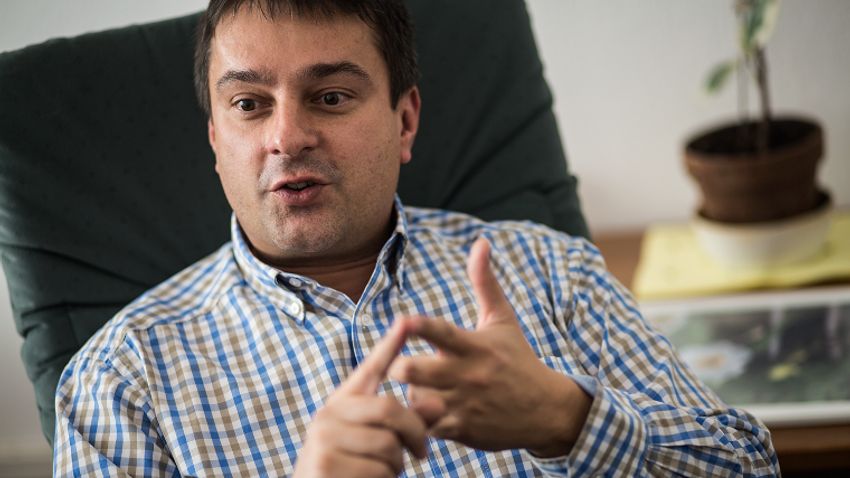Last week, Minister of Territorial Development Tibor Navracsics and Prime Minister Gergely Gulyás announced at a press conference that Hungary can now access EU funds. Within the framework of the Recovery and Resilience Building Facility (RRF), HUF 2,300 billion will be opened up for Hungary. We asked political scientist Zoltán Kiszelly, director of the Center for Political Analysis of the Századvég Foundation, about what this success could mean for our country. According to Kiszelly, the agreement reached is a huge achievement for Hungary, but at the same time it must not be forgotten that these funds go to Hungary, these resources are not donations or even gifts from the European Union.
A POLITICAL COMPROMISE WAS ACHIEVED, WITH WHICH HUNGARIAN INTERESTS AND THE PREVIOUSLY EMPHASIZED ASPECTS OF THE GOVERNMENT WERE VALIDATED, IN ADDITION THE UNION MONEY WAS NOT LOST.
The director said - which the ministers also emphasized - that a solution was found for the Ukrainian aid, which will not mean taking out another loan, but a reorganization within the current EU budget. He stated:
the European Commission will therefore solve the issue from the current budget, by regrouping.
In the case of the 15 percent corporate tax, Hungary received an exemption from the EU. By the way, our country already received this in the OECD last year - there for 10 years - which means that there is no need to raise the 9 percent Hungarian corporate tax rate to 15 percent. This is a discount with which Hungarian companies can better adapt to the regulations. This is also a huge success - said Zoltán Kiszelly. The director also explained that this means that
THE GOVERNMENT DIDN'T HAVE TO GIVE UP ON ITS PREVIOUS IDEAS, AND THERE IS AN AGREEMENT ON THE OTHER SIDE.
The director drew attention to the fact that the contract on the reconstruction package will probably be signed soon - it will be signed by Viktor Orbán and Ursula von der Leyen - and thus 70 percent of the 5.8 billion euros will not be taken. In this way, it is possible to realize the goals agreed by EU leaders in 2020: the transition to climate neutrality, digitalization and the development of healthcare.
An agreement was also reached regarding the 7-year budget, which is also a success, because they want to lock in not 65, but 55 percent. This means that if it is possible to agree on the so-called milestones, then this money can also be released. According to Zoltán Kiszelly, our country will receive 10 percent more in this way, which is an excellent result, and obviously this also helped to create the current compromise. Kiszelly also said that, just like the other member states, Hungary also pays into the EU budget. He added:
the fact that we get more back is part of the political compromise, since we have opened up our market and many Hungarians trained with our money work in the West.
Kiszelly said that an agreement must first be reached on whether the teacher salary increase can be realized with the money received. He drew attention to the fact that
so far, this has mostly been hindered by the left-wing Hungarian MEPs who, through their parties, advocated that our country, and thus the Hungarian teachers and education system, should not receive the resources that we are entitled to, and which also provide additional resources for the salary settlement of teachers.
Tibor Navracsics previously said that the government will work with the Commission again from January, but he is confident that there will be no new conditions. Regarding whether there will be new obstacles, Kiszelly said that there will be
THIS SO-CALLED SUPER EARTH SYSTEM SERVES TO MAINTAIN POLITICAL BLACKMAIL. AGAINST THE POLES, 116 SUCH PEOPLE WERE DRAWN TO RECEIVE MONEY, WITH US NOW THERE ARE 27. ACCORDING TO THE DIRECTOR, YES, IT CAN BE PREPARED FOR FURTHER CONDITIONS.
He said that every year the EC accepts a country-specific report and a democracy monitoring report. Recommendations are made for each member country and once they are part of the mechanism, any new recommendations can become part of this system.
In other words, if, for example, they write that gender ideology must be supported, which is not officially related to, say, the payment of EU funds, then they can come up with anything. In many cases, these are not conditions that are logical, but rather conditions that are political in nature
he added. According to Zoltán Kiszelly, this is a permanent tool of political blackmail in the hands of the Union.
Source and full article: Origo
Featured image: Ripost













